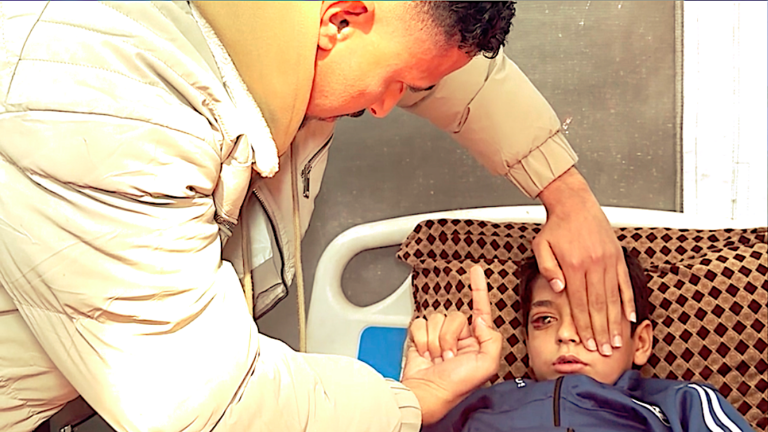
Commentary
 By Venkatesh Raghavan
By Venkatesh Raghavan
Russia, having held talks with both sides of the scale, namely China and Pakistan; as well as India, is as of now disinclined to pitch for any international recognition for Afghanistan’s current Taliban regime. Russia along with India has expressed the sentiment that the Taliban regime has backtracked on the promises it made to the international community besides failing to usher in an inclusive administration.
While both India and Russia are in favour of providing humanitarian relief to the citizens of Afghanistan, they are also keen on seeking United Nations’ assurance to the effect that the aid provided will get distributed without any discriminatory policies being adapted by the ruling Taliban regime. It may be recalled that in the recently concluded G20 summit, Indian Prime Minister Narendra Modi had called for urgent relief supplies to the people of this war ravaged country.
Two months have elapsed since the Taliban regime took over the reins of Afghanistan and it’s precipitating a humanitarian crisis of unprecedented scale with more and more Afghan citizens fleeing to neighboring countries to escape the tyranny being imposed on them, as well as worsening drought.
From the Indian point of view, fears arising that Afghan soil could be used as a fertile ground for training and transporting terror outfits from across our border with Pakistan into the now sensitive Kashmir valley, are ground enough for striking a geopolitical balance strategically between the Asian power blocs.
Traditionally, it was Russia and Iran being tied up with India and China backing its ally Pakistan on matters of financial and military help that the current Afghan crisis demands. However, it should be noted that soon after India held consultations with Russia and other Asian bloc nations, which was boycotted by China and Pakistan; the Russian foreign ministry also participated in a summit that was hosted by Pakistan for the Asian bloc. Needless to say, just a day after the Delhi Dialogue, the Chinese too presided over the meeting jointly with Pakistan in Islamabad on November 11, 2021, and released a joint statement which recalled “respect for the sovereignty, independence and territorial integrity of Afghanistan, agreed to continue practical engagement with the Taliban, called for the international community’s urgent provision of humanitarian and economic assistance to Afghanistan, welcomed the role of the United Nations as a coordinator in such fields as contributing to stability and delivering emergency assistance and condemned the recent terrorist attacks in Afghanistan”.
Also read: Delhi Declaration calls for cooperation against radicalization in Afghanistan
The Chinese had abstained from the said New Delhi dialogue on Afghanistan due to “scheduling”. India did take a serious note of the non-participation of both Pakistan as well as China. The official spokesperson of the Indian Ministry of External Affairs, Arindam Bagchi, minced no words during a press breifing on November 11, 2021, and said, “The invitation was issued, I would say that if they do not come to such an important meeting, then you can know from this what kind of attitude they have on the issue of Afghanistan. That’s all I want to say.”
The current Taliban regime in Afghanistan is faced with a severe existential crisis in wake of world governments refusing to grant it recognition in the face of mounting human rights violations and the non-inclusive nature of its cabinet. While neighbouring Pakistan expressed apprehension that the continuing global boycott leading to an economic collapse of Afghanistan might trigger instability in the entire region, Indian envoys expressed grave concern over “export” of terror modules from across our northern border.
As of now, funding from international bodies to mitigate the Afghan crisis has been severed. The present regime has no liquidity to even pay salaries or feed its staff members. The Afghan citizens are facing starvation owing to severe drought conditions that are prevailing in the country. If the crisis continues unabated, it would become infeasible for the Taliban administration to run their government.
With international funding dried up, it has become difficult to pay even salaries, let alone pursue development projects,” he added. “The common man is reeling under the effects of a severe drought. Any further downward slide will severely limit the new administration’s capacity to run the government” in Afghanistan. The participant Asian nations in the meets organized by India as well as Pakistan, unanimously called for the Taliban to recognize human rights besides provide parity to women by means of an inclusive governance model.
Interestingly, the Western powers, including the United States of America’s Joe Biden administration too have expressed reservations about funding the Taliban regime in the absence of assurances on the right front. Currently, the New York Federal Reserves holds USD 9 billion dollars of Afghanistan’s Central bank. However due to freezing of assets, the government installed at Kabul is unable to access the funds. Pakistan in its supportive bid urged for the easing of fund flow to the war ravaged nation in order to ensure the survival of Afghans and their administrators. Meanwhile, American President Joe Biden, after his interaction with the Chinese foreign office, remarked that China and other Asian neighbours of Afghanistan have a job cut out for them to resolve the crisis.
As of now, it appears the Taliban-ruled Afghanistan is set to combat the existential crisis!





